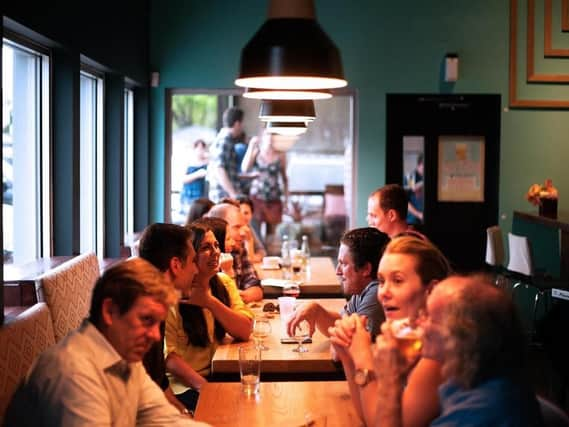Unusual dinner etiquette around the world - tipping in the Us and making a mess in China


Researchers from MyBaggage.com have revealed 12 unusual pieces of dining etiquette from around the world, to save British travellers from potential misunderstanding or embarrassment when eating overseas.
When dining in Portugal, it’s considered insulting to ask for salt and pepper to accompany your meal, as the chef has prepared the dish to taste a certain way and trying to alter that is questioning his or her abilities in the kitchen.
Advertisement
Hide AdAdvertisement
Hide AdIn the Far East meanwhile, it can be considered a great compliment to the cook if dinner is slurped loudly. It’s also a sign of satisfaction if plates are left unfinished after a meal.
A spokesperson for My Baggage said: “International table manners can often be a lot more complicated that simply making sure you’re holding your knife and fork in the correct hand.
“We’ve put together a guide to some of the more unusual dinner customs and expectations around the world, so that British holidaymakers and business travellers can steer clear of causing any unnecessary offence and pay due respect to their hosts abroad.”
1. Make a mess in China
In China, leaving a mess on the table is deemed a gesture of approval and a compliment to the chef. It’s good to make sure there’s a little food leftover too, to show your host that more than enough was provided.
2. Slurp noodles in Japan
Advertisement
Hide AdAdvertisement
Hide AdIt’s a common sign of appreciation for a cook’s good work in Japan to slurp noodles, soups and other suitable dishes as loudly as possible.
3. Snub cutlery in Mexico
Mexicans generally consider using a knife and fork to be a bit snobby – tacos and burritos weren’t designed for cutlery.
4. Never use your hands in Brazil or Chile
Even if dinner is pizza, burger or chips, many South Americans consider touching food with your hands to be quite rude.
5. Use the right hand in the Middle East
It’s traditional to eat with your hand in Arabic counties, but never use the left one – this is considered to be unclean.
6. Ignore seasoning in Portugal
Advertisement
Hide AdAdvertisement
Hide AdAsking for salt, pepper or other seasonings to go with your meal in Portugal is thought to be an offensive statement regarding the cook’s skills.
7. Make sure to tip in the USA
There’s a heavy tipping culture across the pond so be prepared to leave 15-20% of your bill as a thank you following any meal, even if the service wasn’t exceptional. Tourists who don’t may risk embarrassment as they could be confronted.
8. Share a plate in Ethiopia
Individual plates are considered wasteful at Ethiopian dinner tables, so food is always shared among the group from a single plate and without cutlery.
9. Don’t split bill in France
Suggesting the bill is split at a restaurant in France will probably be greeted by a big sacré bleu! It’s considered to be very unsophisticated, so either offer to pay up the whole lot or allow someone else to.
10. Shhh! in Saudi Arabia
Advertisement
Hide AdAdvertisement
Hide AdConversation should be kept to a minimum during meal times in Saudi Arabia, to allow fellow diners to savour their food.
11. Dive in in India
If holidaymakers are guests at a restaurant or house in India, they should be prepared to tuck in first – everyone else will sit around waiting for you out of respect. If you’re hosting the meal, make sure guests and then the eldest are served first.
12. Hang around in Spain
Spanish meals are social occasions full of conversation between diners and its common to stay seated for half an hour after your plates have been cleared, rather than leaving immediately.